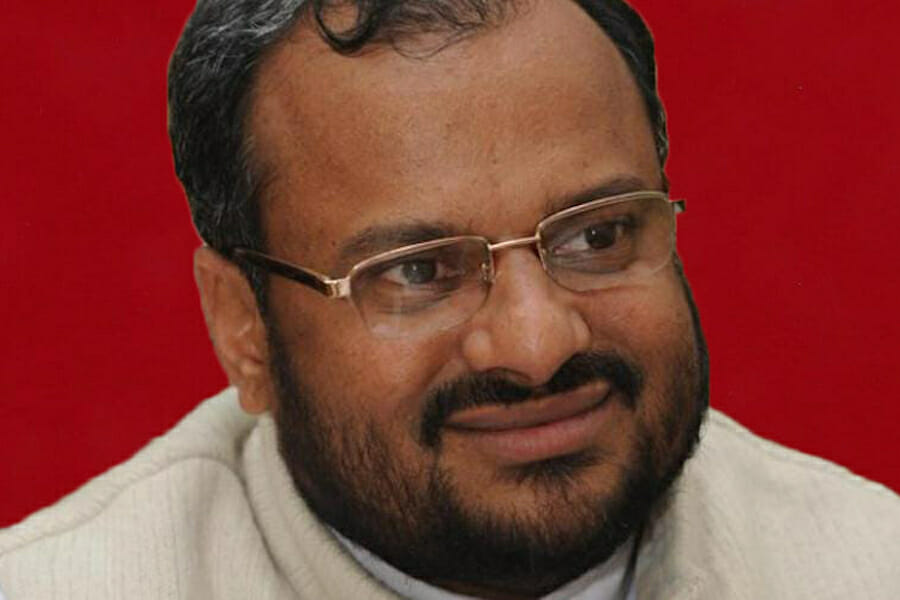
Time’s Up: A Moment of Reckoning for the Church in India
It’s been a rocky week of headlines for the Catholic Church in India. Never before have nuns broken ranks with the Church to protest in public, what they perceive to be a miscarriage of justice. A nun from the Missionaries of Jesus near Kottayam in Kerala accused Jalandhar Bishop Franko Mulakkal of rape. The nun alleges that she was sexually assaulted 13 times, between 2014 and 2016. Bishop Mulakkal also happens to be the head of the congregation.
To begin with, there’s so much that’s wrong with the way the case is being handled both by the Church and by law enforcement. While the Church completely shut out the nun and refused to act on her complaint, law enforcement is dragging its feet in the investigation.
But there are certain facts that stare us right in the face. A Bishop is all-powerful in the Church hierarchy system. Think about the last time a Bishop was declared guilty of any crime and punished by the Church. Take a look at the United States or Chile – it’s only after media reports and public outcries, that the Vatican stepped in and forced the diocese in question to act against the guilty. Pope Francis himself publicly begged for forgiveness for sexual and institutional abuse, during his recent trip to Ireland.
For years, cases of abuse and misconduct within the Catholic Church have been buried. The Church has made financial settlements to buy the victim’s silence. What’s unfolding in India then is no surprise.
While in other countries the Church deals with the issue by paying their way out of it, in India it indulges in victim blaming and character assassination. The Church in Jalandhar has given the Bishop a clean chit. The victim’s congregation meanwhile has backed Bishop Mulakkal, calling him an “innocent soul” even before the investigation has been completed. “Our consciousness does not allow us to stand with the victim and the sisters who are supporting her in order to crucify an innocent man,” said the congregation. To further discredit the nun, the congregation released a picture of her sitting next to the Bishop, adding that they would not be responsible if the photo becomes public.
Publishing the identity of a rape victim is an offense punishable under Indian law. But the Church doesn’t seem to be too perturbed by it. Moreover, it evoked the images of Christ’s crucifixion to defend the accused – a move that is highly manipulative and reprehensible. These actions are mere examples of how the Church has always exploited the deep faith and sentiments of the laity to cover up its misdeeds. That the faithful have always stood by the Church has somehow emboldened them.
By nature of the vocation, nuns are invisible members of our society who dedicate their lives to prayer and other charitable causes. They are sequestered behind the high walls of a convent and have limited contact with the outside world. The church then becomes everything to them. But in the hierarchy system, they are lowest in the pecking order, and extremely vulnerable to abuse. And so, it is even more imperative for the law of the land to come to their aid when the Church doesn’t. In this case, the law should treat Bishop Mulakkal the same way it treats every other accused.
What’s heartening, however, is to see the support the victim has received from different quarters of the community. Organizations like the Joint Christian Council, Save Our Sisters Action Council and lay members of the Church have joined the five protesting nuns, calling for action against Bishop Mulakkal. The protest resulted in Bishop Mulakkal, only recently, stepping aside, and handing over charge to Monsignor Mathew Kokkandam.
But there are many who are still watching from the sidelines – refusing to discuss the issue or force the Church to act on it. Conservative sections of the Indian Catholic Church are of the view that priests are holy men who are only accountable to God, and judgment of their sins are solely reserved by the divine. This argument is archaic and they couldn’t be more wrong. Priests are mere mortals. Some of them even predators in holy men’s clothing.
And if donning the cloth makes one holy, the same holds true for the nun who is now facing character assassination and ostracizing. Where is the support for her from the Church? Why are the rules different for men and women within the religious? Deep-rooted patriarchy and sexism here are jarring. Shying away from the topic or shutting down all discussion is not going to make the issue go away or prove that the Bishop is innocent. Silence only makes us complicit in the crime.
As distressing as this case is, it has presented the members of the Church with a rare opportunity – to demand positive change and to question the disproportionate power assigned to the clergy.
It also presents the Church with an opportunity to examine the failure in its leadership. This failure has damaged the Church’s voice of moral authority in the public sphere. It has also dented the morale of the community. Let’s not forget that this damaged morale resulted in the faithful abandoning the pews in many countries across the globe.
This is the chance for the laity to lead the charge – to force the leadership to re-structure. The new leadership should be transparent and accountable. They should go back to the basic tenets of the Church which is grounded in justice – to protect the vulnerable and provide justice to those who have been harmed. This is important to restore faith and safeguard the future of the Church.
It is a critical time for the faithful, who need to stand together – and live up to their responsibilities as citizens and to act. Change of this magnitude will be hard — but not impossible. After all, this is a fight for the soul of the Church.

